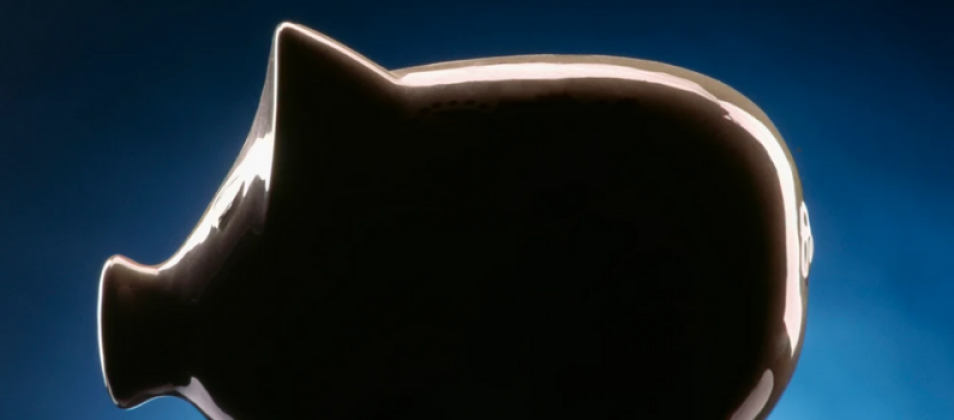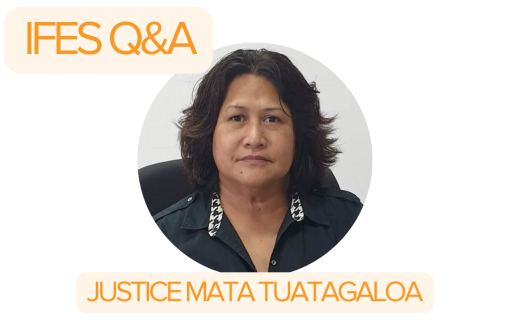
The Dark Side of Democracy
The Dark Side of Democracy was first published by Foreign Policy.
Written by Katherine Ellena and Erica Shein.
We need to talk about the dark side of money in politics. Dirty money. Foreign money. Illicit, opaque, crypto, gray and black.
We need to talk about this murky spectrum, because it wreaks havoc on our democracies. In recent weeks the U.S., the E.U. and others have acted against Russian financial interests, including sanctioning oligarchs who have enriched themselves on the country’s resources and whose fealty to the state has enabled its aggression. But it will require a concerted re-orientation of the global community of democracies to address the corruption threats we all face.
The corruption problem that threatens democracy is more vast than illicit finance in elections, but this is often the gateway to more pervasive political corruption. The consent of the governed — established through credible elections — is the foundation of democracy. If elections are merely a currency to manipulate at will, this foundation collapses. It is unsurprising then that political corruption fuels foreign malign influence and the entrenchment of autocrats. And its consequences do not stop there. In a recent Foreign Policy Virtual Dialogue held in partnership with IFES, Bill Browder — whose advocacy led to the U.S.’s adoption of the Sergei Magnitsky Rule of Law Accountability Act — noted that “everything about kleptocracy and corruption” leads to terrible violence and repression. If we are serious about protecting our democracies — as the people of Ukraine are doing with their lives — we must recognize and address this problem alongside democracy’s other discontents.
This is more easily said than done. Even the most clear-cut forms of illicit funding or spending in elections are hard to tackle. More than 88 percent of countries have banned vote buying, for example, yet prosecution of offenders is uncommon. The reasons are manifold: intense sensitivity around “political” allegations, the high standard of evidence required for conviction, and the long timeframe for criminal proceedings. Potential civil penalties or injunctions are also underutilized. As a result, corrupt behavior goes unpunished—and democracy suffers.
If these more straightforward acts of corruption in the electoral process are difficult to address, then we face a far greater challenge in addressing the myriad ways in which elections can be threatened by corruption, both inside and outside a country. Four of these methods are worth examining in more detail.
First, criminal groups instrumentalize elections to launder illicit funds and to support politicians who will permit them to continue to operate with impunity. In Central America, for example, such “dirty money” (money obtained illegally) in campaign finance is recognized as an endemic problem that results in a marriage of organized crime and politics that is difficult to unravel.
Second, foreign interests funnel money across borders and into political campaigns. The Alliance for Securing Democracy has extensively documented the pollutant effect of dark money (political funding where the source and any intermediary donors are unknown) across 33 countries in the past decade. This includes the United States, where lacunae in the regulatory framework and insufficient oversight resources have until recently created a permissive environment for “black hole money.” In Australia, the specter of dark money has emerged ahead of 2022 elections, with fingers pointing back to China.
Third, malicious actors fund sophisticated online disinformation campaigns and political advertising masquerading as genuine content. As our colleagues have noted in Counteringdisinformation.org, such campaigns are “supercharged” by networks with deep bank accounts. Globally, there are few regulatory guardrails to prevent illicit sponsorship of online influence activities. A European Commission report has documented information manipulation in political processes across the EU that is connected to malicious foreign state and non-state actors. Following the 2016 U.S. election, a grand jury indictment of Russians with ties to the Kremlin revealed a campaign of paid internet advertising that manufactured controversies to influence the election outcome.
Fourth, cryptocurrency political donations and non-fungible tokens (NFTs) open new avenues for corruption in elections. The volume of cryptocurrency transactions globally has exploded in recent years, though illicit crypto transactions are estimated at $14 billion, a drop in the sea of illicit physical currency. What constitutes “illicit” transactions in this sphere is largely undefined, however, and the alacrity and sophistication of malign actors is likely to vastly outpace the ability of democratic actors to respond to them. It would be dangerous to ignore the potential impact of unregulated cryptocurrency and its digital kin on democratic elections.
Across these complex issues, skewed incentives of policymakers present a significant barrier to change.
Political and campaign finance regulation is fraught, as it threatens the resources — and viability — of parties and candidates across the political spectrum.
Heightened regulation also limits options for autocrats to hide corrupt patronage networks, which they will go to great lengths to protect. When the International Commission Against Impunity in Guatemala accelerated its investigation of dirty money in politics, backlash from political elites intensified, and the investigative body was ultimately dissolved. As the Council on Foreign Relations noted, “That alone should be proof of how much influence the corrupt stand to lose through thorough campaign finance reform.”
Weak regulation or blocked reform at the national level is mirrored by porous international frameworks that have not kept pace with proliferating threats. As IFES has previously observed, the U.N. Convention Against Corruption does not explicitly recognize the specific risks posed by election-related corrupt conduct. And while the June 2021 U.N. General Assembly Political Declaration finally acknowledged the importance of protecting election integrity as a corruption prevention measure, the declaration focuses on transparency in political funding as the primary solution — offering merely an umbrella in the face of a hurricane.
So, what more can be done? Concerted — and non-self-interested — action is needed at the national, regional, and international levels to turn off the spigot of money that corrupts democracy.
We need greater transparency to eradicate the influence of dark money on elections. This includes transparency on where money is coming from, how it moves and where it lands.
We need more sophisticated sanctioning power to prevent dirty money from leaking into political processes.This means both injunctive and punitive sanctioning power against criminal actors for not only their extractive behavior (acquiring and laundering ill-gotten gains) but also their investment behavior (directing those gains into the corruption of elections).
We need strengthened regulatory regimes that unravel domestic elections from foreign purse strings. This requires meaningful legal prohibitions — and enforcement capability — at the national level that encompasses governments, individuals, firms, and other third parties. But domestic effort could be bolstered by regulatory action at the regional and global level that creates new norms around foreign funding in elections — something currently being considered by the European Parliament.
We need to match the imagination and ambition of bad actors who will seek to use the new crypto frontier for undemocratic political gain.
On March 9, President Biden signed an executive order that includes a directive to “mitigate the illicit finance and national security risks posed by the illicit use of digital assets.” Illicit financing in elections and politics darkens our democracies, and it should receive attention commensurate to that threat.
The breadth of recent sanctions and regulatory actions against the Russian regime, its banks and its oligarchs — and the speed at which they have been put in place — has finally turned ripples into waves of action against corrupt networks. These actions must not stop here, but extend into new domestic and global frameworks that raise the costs of corruption for kleptocrats and incentivize good governance — protecting our democracies from not only the aggressions of autocratic neighbors and foes, but also the would-be autocrats within.
Published on April 7, 2022.











